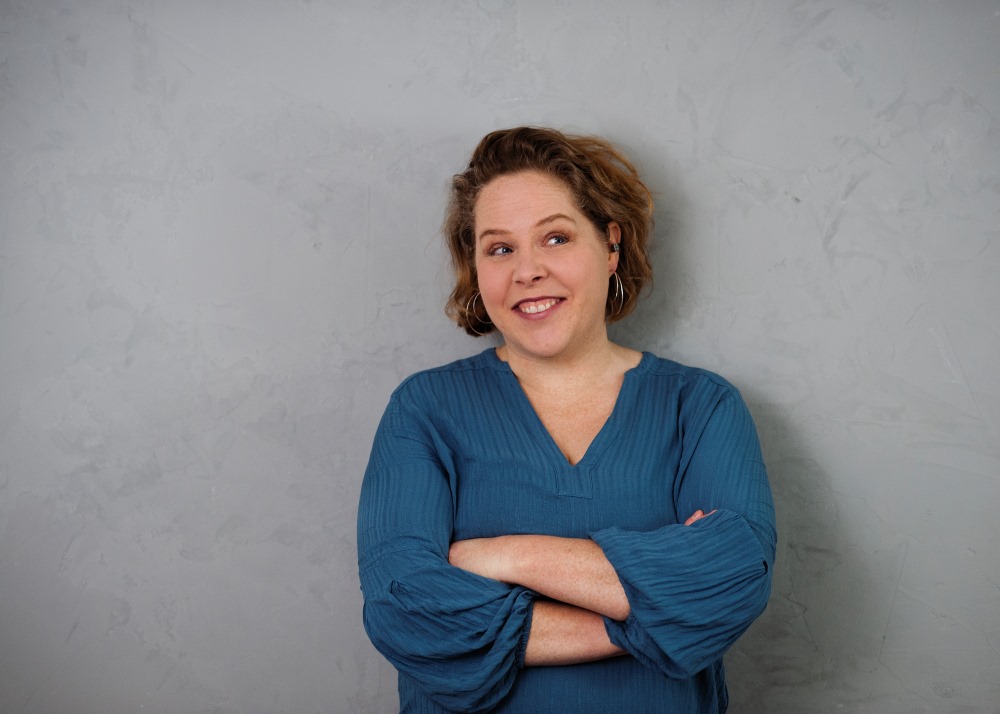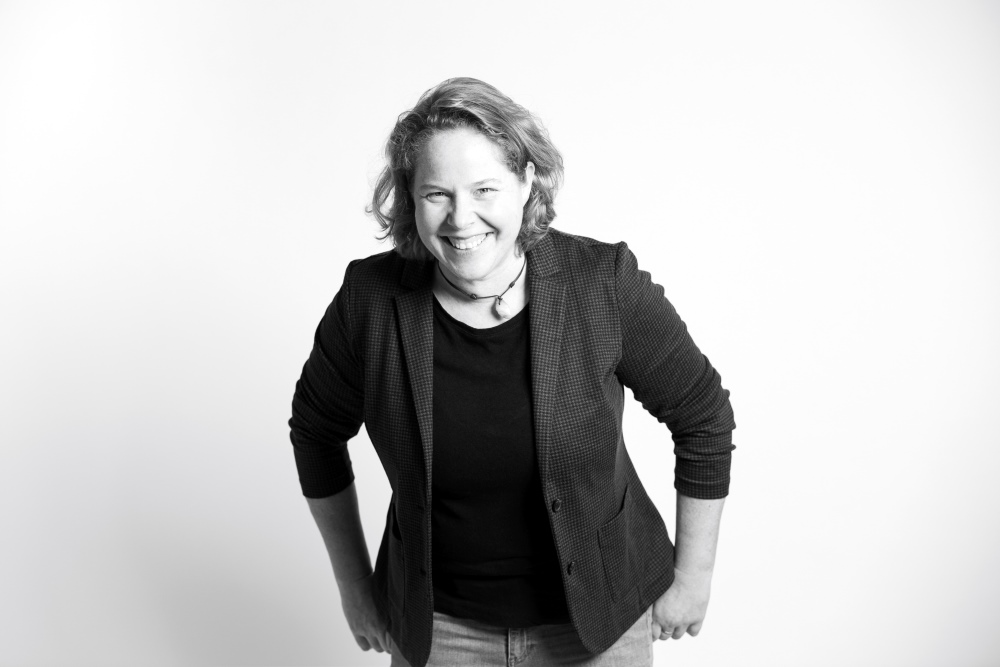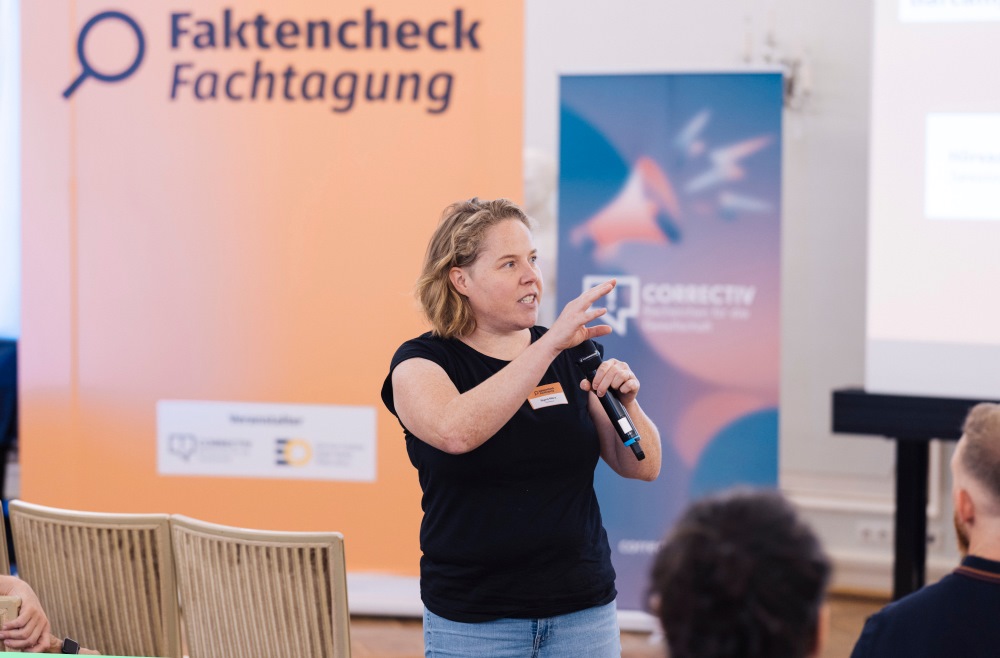March 21, 2024
A Resident Journalist’s Soliloquy
German science journalist Sigrid März is the 2024 ISTA Journalist in Residence
For its second year of existence, the Journalist in Residence program of the Institute of Science and Technology Austria (ISTA) welcomes Sigrid März to the campus community from April to June. As an independent science journalist with years of experience navigating the German media landscape, the former researcher will engage with ISTA scientists to find well-founded answers to questions of high relevance to society. Get to know Sigrid März in this self-talk.

Sigrid–A Soliloquy
Sigrid, how does your perfect day look like?
Different.
Please elaborate on that.
If it were like a day that has already passed, it would be in vain. Because it wouldn’t bring anything new.
Does that mean you need hustle and bustle around you every day?
Rather the opposite. For me, the greatest happiness lies in silence, in listening, in tranquility. I find it outdoors, in the forest, on the dune, by the sea—and often alone. Nevertheless, nothing is the same as it was yesterday, because nature never stands still. Every day is different. The large oak tree in the park has one more leaf today than it had yesterday. Different insects are crawling in the meadow. The brook flows in the same channel, but the water molecules are not the same ones.
Now that’s quite on a metalevel, isn’t it?
Absolutely. But that’s my inspiration and I draw energy from it. The perfect day is therefore always different and, at the same time, similar: sunny, dry, and around 22°C. The North Sea on the left, barren heathland with lots of sand and a few flowers on the right. Coffee in a thermal mug, bubbly water, a bag of licorice in my rucksack, and a camera with a macro lens in my hand. Then I observe and shoot photos, especially of small animals, wild bees, beetles, and bugs.

Has it always been like that?
It has for as long as I can remember. I sort of grew up in the dirt, among millipedes in the leaf litter and old jam jars with snail eggs.
So, studying biology was a logical step.
Indeed, it was. I wanted to understand a little more about how life works and what we are made of. I completed degrees in genetics and biophysics and then did a PhD in cell biology at the Max Planck Institute for Molecular Biomedicine in Münster. All in all, I spent around 20 years doing research, mainly on the molecular mechanisms of blood vessels.
Then how come you now work as a science journalist?
The German science system does not tolerate permanent researchers without radical career ambitions. But that’s no reason to resent it; quite the opposite: when I ask questions today to understand something, no matter how weird or absurd, nobody is surprised; after all, I’m a journalist. Asking questions is my job. It’s a paradise for chronically curious people.

What do you write about and for whom?
I write about medicine, research, biotechnology—that sort of thing. And I do that for several German-language media. However, I work entirely as a freelancer, so I’m not employed anywhere. Over time, this has led to a wide variety of assignments. For example, I also edit, I teach science journalism, I’ve advised film directors on a manuscript for a science fiction movie, and I wrote—together with a physician—my first non-fiction book on endometriosis. This book is being published these days. I’m also currently working on three funded journalism projects: an AI-based reporting chatbot, a research collective for evidence-based journalism, and an insect camera.
You were also involved in one of these projects last year—tell me more about it.
Yes, the poly-perspective reportage is an innovative, interactive narrative format. It allows users to determine the course of a story and take on different perspectives. It’s best to try it out for yourself. I worked on the poly-perspective reportage as a “RiffReporter.” RiffReport is the platform for which I usually write about insects and biodiversity.
No two days are the same. Is that why you’re drawn to ISTA?
Among other reasons, yes. The prospect of being able to ask lots of weird questions is indeed tempting. But above all, I want to keep an open mind, and the only way to do so is through change and getting out of the daily routine. In my opinion, there’s nothing worse for a journalist than following well-trodden paths and standing still.



